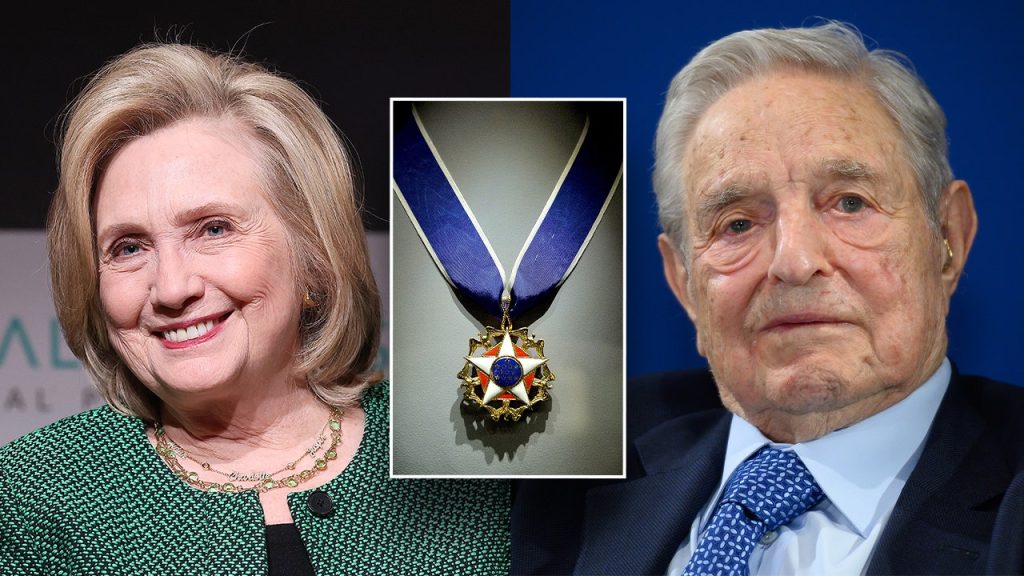The announcement of President Biden’s decision to award the Presidential Medal of Freedom to former Secretary of State Hillary Clinton and billionaire philanthropist George Soros ignited a firestorm of controversy on social media. Critics, led by figures like Elon Musk, vehemently denounced the decision, characterizing Soros as someone who “hates humanity” and accusing both recipients of eroding the fabric of civilization. Conversely, the White House lauded Clinton’s groundbreaking career in public service, highlighting her role as the first female senator from New York, the first First Lady to hold elected office concurrently, and the first woman nominated for president by a major U.S. political party. Soros was commended for his extensive philanthropic work through the Open Society Foundations, which supports democracy, human rights, education, and social justice initiatives globally. This stark contrast in perspectives underscores the deeply divisive nature of the awards.
The controversy surrounding Clinton’s award stems largely from her tenure as Secretary of State, marked by criticism of her handling of the 2012 Benghazi attack and her use of a private email server for official communications. While the FBI investigated the latter issue, ultimately no charges were filed. Soros, a prominent Democratic donor, has drawn criticism from the right for funding progressive district attorneys, who some blame for rising crime rates in certain cities. These pre-existing controversies fueled the immediate backlash against the awards, transforming the announcement into a political flashpoint.
The timing of the awards, just days after Biden bestowed the Presidential Citizens Medal on Representatives Liz Cheney and Bennie Thompson for their work on the January 6th Committee, further amplified the political undertones. This proximity fueled the perception among critics that the Medal of Freedom awards were politically motivated, further intensifying the backlash. The contrasting narratives surrounding these individuals – Clinton and Soros as champions of progress versus agents of societal decline – reflect the deep political divisions within American society.
The Presidential Medal of Freedom, the nation’s highest civilian honor, is intended to recognize individuals who have made exceptional contributions to the United States and the world. The 17 other recipients alongside Clinton and Soros represent a diverse array of fields, including politics, entertainment, sports, and activism. Among them are posthumous awards for Robert F. Kennedy, celebrated for his fight against racial segregation and poverty, and Ashton Baldwin Carter, the 25th Secretary of Defense. Other notable honorees include actors Denzel Washington and Michael J. Fox, U2 frontman Bono, basketball legend Earvin “Magic” Johnson, soccer star Lionel Messi, and fashion icon Anna Wintour.
The inclusion of such a diverse group, alongside the controversial figures of Clinton and Soros, underscores the wide range of contributions recognized by the Medal of Freedom. While the awards celebrate achievements in various fields, the controversy surrounding Clinton and Soros overshadowed the recognition of the other recipients. Their inclusion sparked a debate about the criteria for the award and whether political considerations played a role in the selection process.
The controversy surrounding the Presidential Medal of Freedom awards highlights the ongoing political polarization in the United States. The sharply divergent reactions to the recognition of Clinton and Soros underscore the deep divisions that continue to shape American political discourse. While the White House emphasized the recipients’ contributions to the betterment of society, critics questioned their motives and impact, further entrenching the existing political divide. This episode demonstrates the challenge of finding common ground in a deeply polarized society, even when recognizing ostensibly meritorious achievements.

